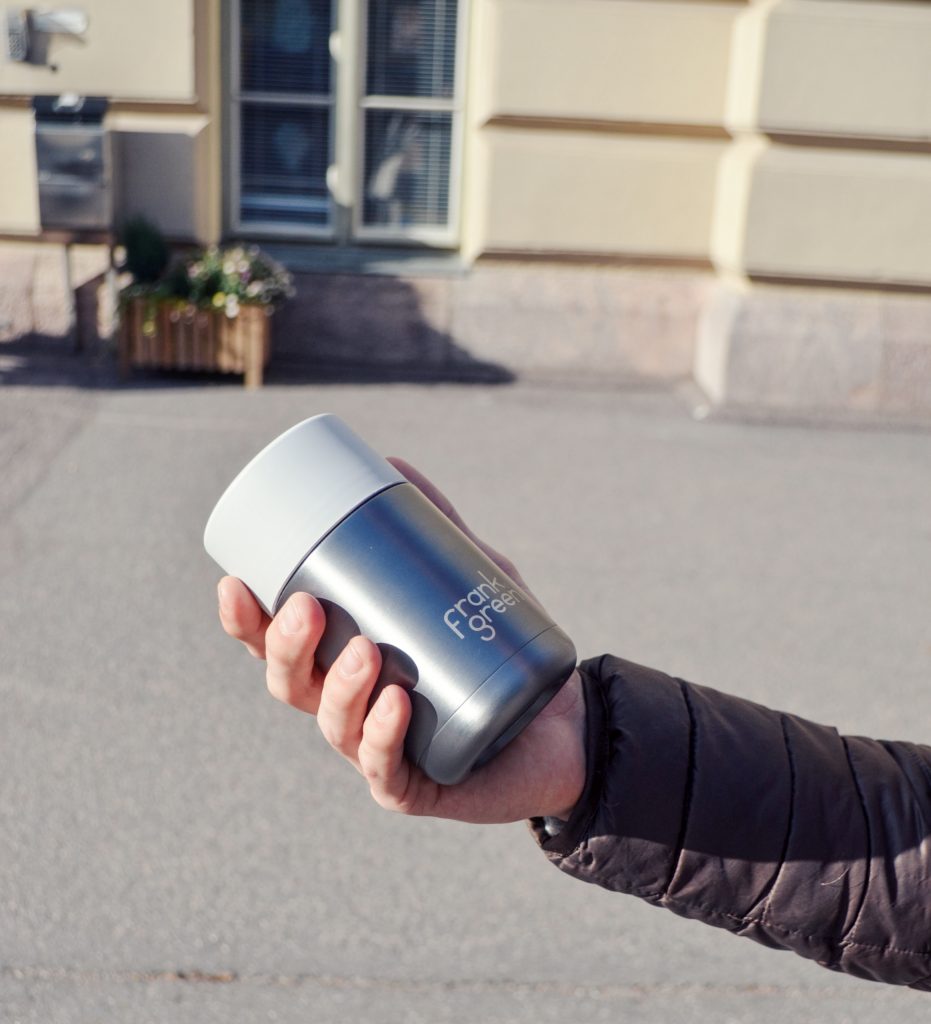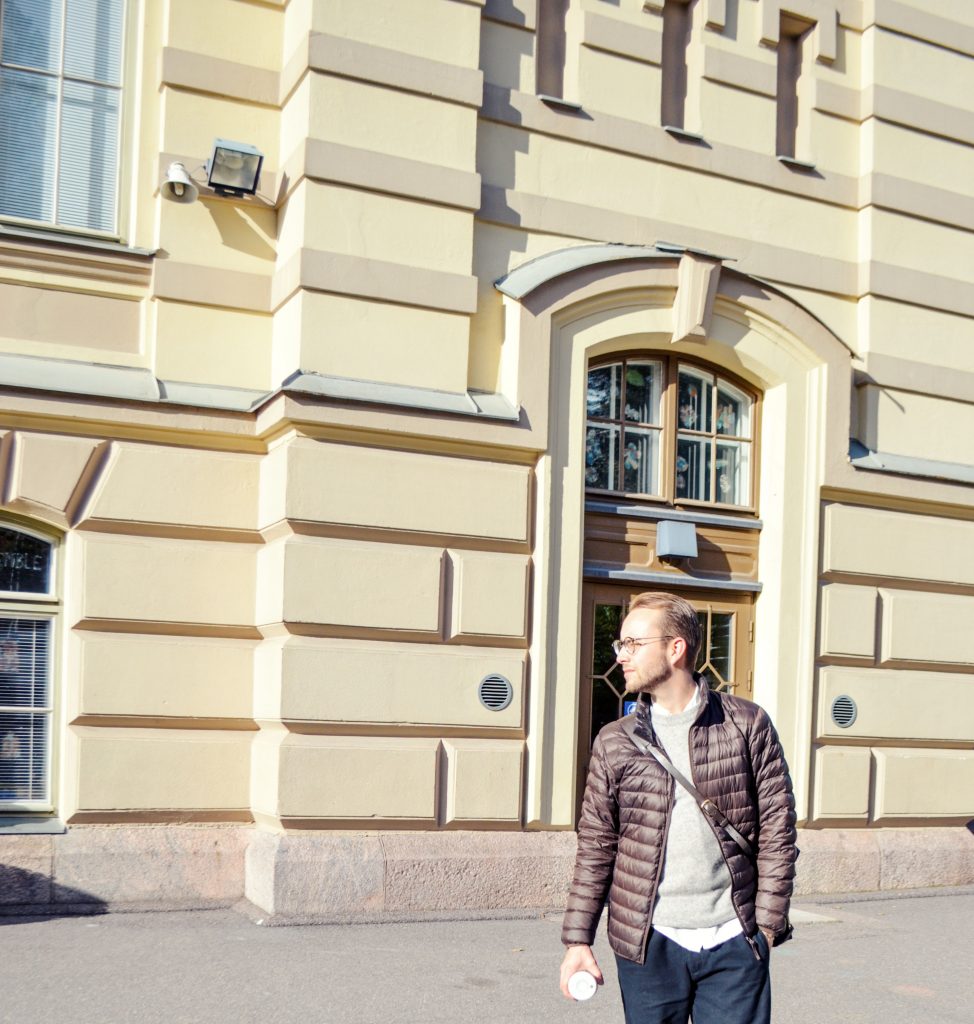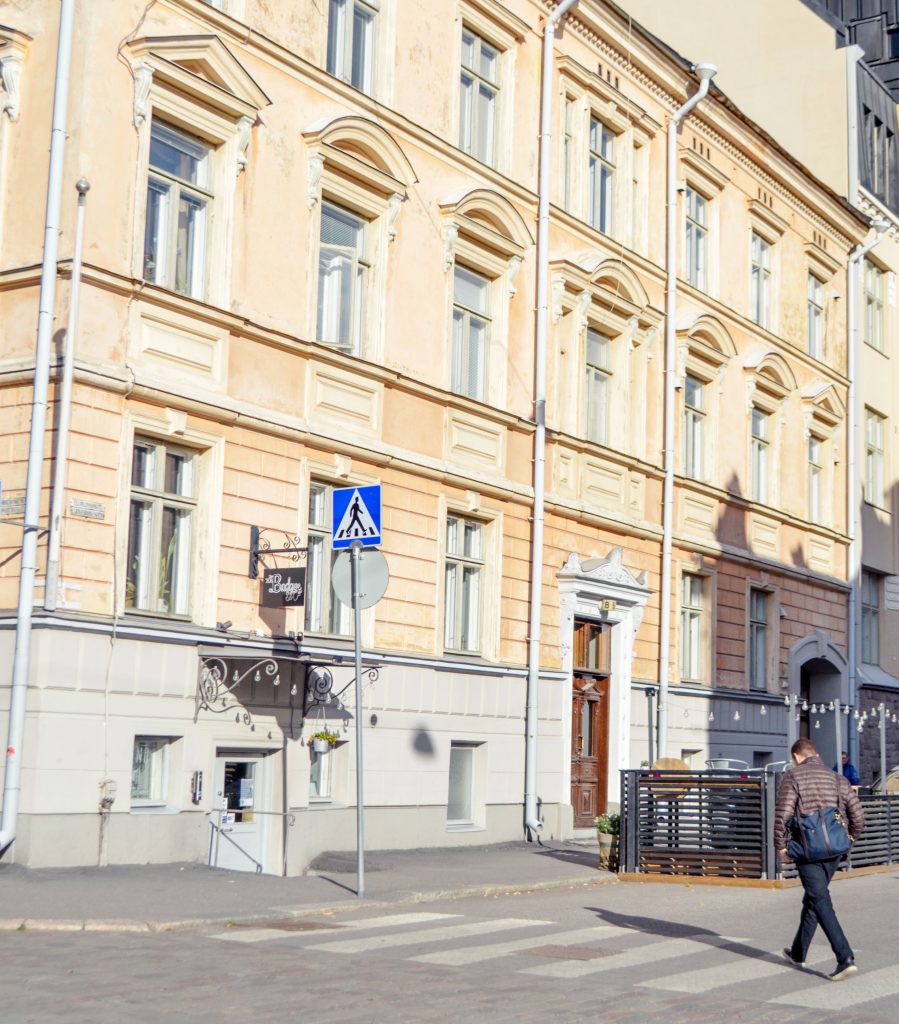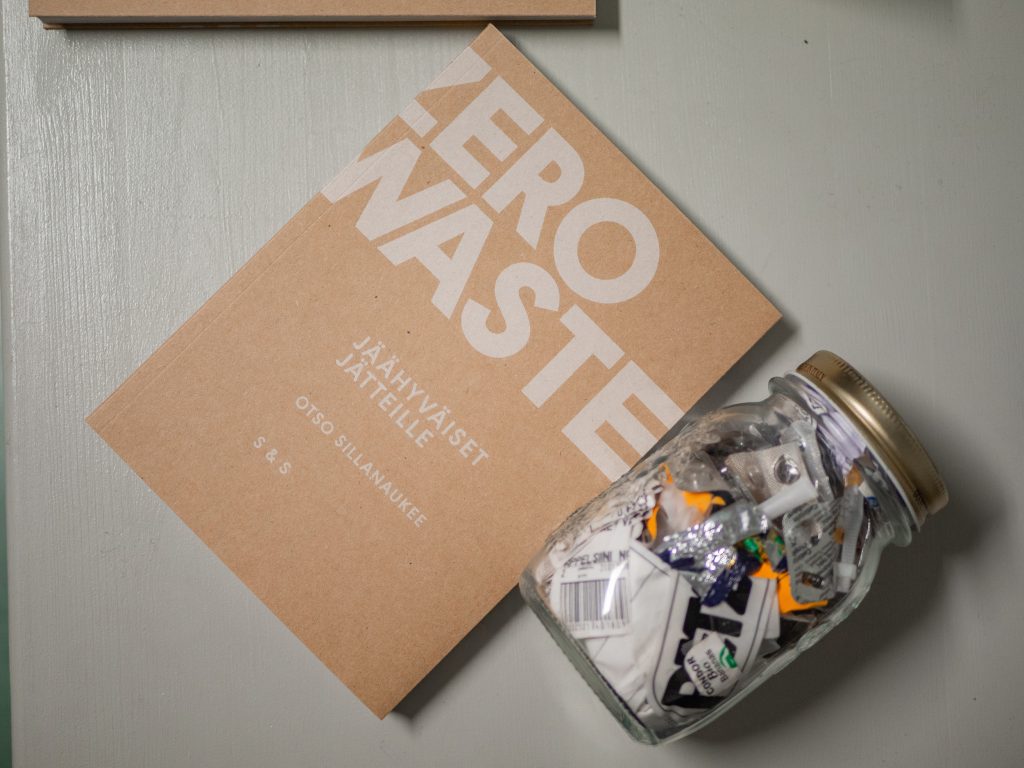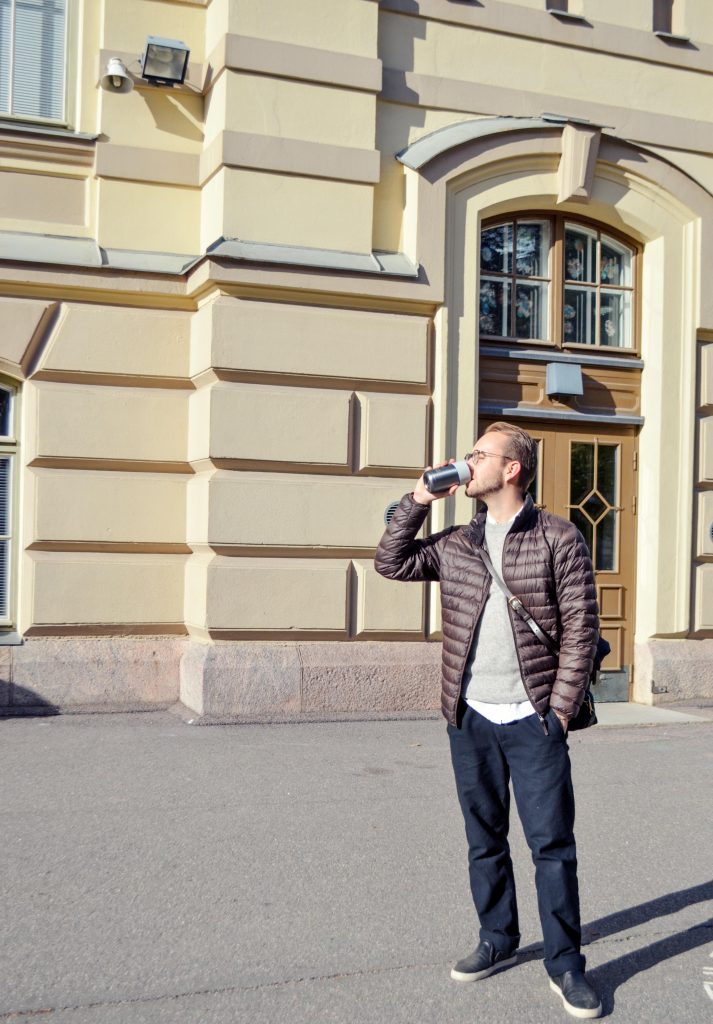SLOW FASHION ICON: Otso
Otso Sillanaukee, author of Finnish zero waste book Zero Waste – Jäähyväiset Jätteille, was among the first to coin the term nollahukka for zero waste in Finland. Dedicating his life to championing an environmentally friendly lifestyle, Otso is currently amidst his Masters studies in Creative Sustainability. His minimal and eco-friendly mindset reaches his sense of style as well. Having an appreciation for the Japanese art of mending and, timeless pieces, sustainable fashion choices come easily to him. We sat down with Otso to discuss how his zero waste lifestyle takes fashion and clothing into consideration, and what ideals are important to him in his fashion choices.
Otso, like most other sustainable fashion advocates, wasn’t always conscious of the repercussions of his consumption decisions regards to clothing. He had heard of the human rights violations of fast fashion brands before he ever became interested in zero waste. “Thinking back now, it’s surprising that knowing that didn’t end up affecting my consumption habits” says Otso. His journey to conscious consumerism wasn’t without its obstacles and changing his mindset about thrifting was an important step; “even a while after starting this, I had that mentality of thinking that I can’t find anything in thrift stores, they only have weird overly hipster clothes, stuff from the 90s and bad materials”. All it took however, was trips to the variety of second hand stores found in Helsinki and he discovered the charm of second hand. Now Otso’s wardrobe is made up of mostly second hand; “I want to mainly buy thing that are already on their way to the landfill”.
Often when we talk about a zero waste lifestyle, fashion is ignored. Otso was quick to highlight why it should be considered however: “It’s something that we use everyday and it’s something we use to construct our identities. In that sense, I think if you’re interested in a more sustainable life, clothes are definitely something you should think about more”. Otso advices to think about what values are most important to you, and acting with those values in mind. For example, the environmental and social impact of a product is just as important as price to Otso, which brings him to the point where he has think if he’s going to buy something just because it’s cheap, or invest more in something when all his criteria is met. It’s also important to build up your knowledge of problems regards to materials and the post use stage of consumption. This has helped Otso make better decisions. After adopting this mindset, he has been very pleased with his purchases; “when I consider the consumption process and what I’m about to buy, I end up being much more satisfied with my purchase”.
“It’s just a fact that we have to accept that planned obsolescence is a real thing. Products are made to be poor quality and they come to the end of their product life cycle before they should” explains Otso. After familiarising himself with the perils of fast fashion, Otso is not even tempted to make impulse purchases; “the garment doesn’t seem desirable anymore when I know that it’s most probably made out of bad materials in bad conditions, it’s been shipped around the world and will most likely end up being burned if no one buys it”. His demands from a fashion brand are also much more stringent now. The garment has to be good quality, timeless, repairable, as local as possible and have a focus on materials for Otso to consider purchasing it. He finds now that the clothes that he does have lasted surprisingly long and he hasn’t had the need to buy more.
I'm not only focusing on the bin at home, but the comprehensive effect my actions have on the world around me
Otso found his way to the zero waste movement one day when he found out Helsinki is bringing out plastic recycling stations, and he realised he couldn’t fit a ninth recycling bin in his tiny kitchen. “I started thinking that maybe this incessant recycling isn’t as big of a climate act as I would’ve thought. I was wasting so much time sorting out my waste”. He started using the word ‘Nollahukka’ to describe his new lifestyle, which he feels describes it well: “it better depicts the fact that I am not only focusing on the bin at my home, but I’m focusing on the comprehensive effect that my actions have on the world around me”. His lifestyle change hasn’t been difficult, on the contrary, Otso feels that it has made things easier in a sense. “I don’t spend my free moments walking around in shops or surfing in online stores and I’m not constantly lingering on social media” says Otso. Saying no to everything useless like samples and free hand outs, because he simply gets nothing out of them. He got rid of clothes he was holding onto, “just in case”, because he was getting no use out of them.
Motivating yourself to keep going in times of adversity can be difficult for beginner zero wasters. Otso says you should always respect yourself and values; “doing these things gives me a good conscience, so I have the right to demand for them, because the effects are also beneficial for others than just myself”. He faced his first struggles as a zero waster when moving to Singapore for an exchange program. “It was a very different experience and put perspective on the fact that here in Finland, recycling is very easy, and elsewhere in the world it isn’t necessarily even possible”. Before moving to Singapore, he had read up a lot about the nation’s strive to become one of the first zero waste countries in the world. The reality was very different: “The image I had of Singapore was that it’s very clean and people probably know how to recycle well and do not litter. I realised that Singapore is maybe more a well cleaned country”.
Whenever talking about sustainability, we love hearing people’s perspectives about how they would change the world if they could. Otso has clear ideas on this; “I’d wish for human rights to be made into a key aspect of any business. In that way it wouldn’t just be a CSR activity or a part of the strategy, but a central theme”. Otso would also make the circular economy a reality by placing the responsibility of waste management on everybody. “If for example every store would have to take their products back, so that the waste management wouldn’t fall into the hands of third party organisations, states or taxpayers. Currently we are paying higher taxes that come from the need to develop waste management, because people put more and more products to waste”. Regards to fashion, he would hope for the system of 52 fashion seasons to be abolished; “if we started producing clothes from good materials that would be priced according to their true cost and that were produced in good conditions, the 52 seasons would be eliminated by default”.
the garment doesn’t seem desirable anymore when I know that it’s made out of bad materials in bad conditions


